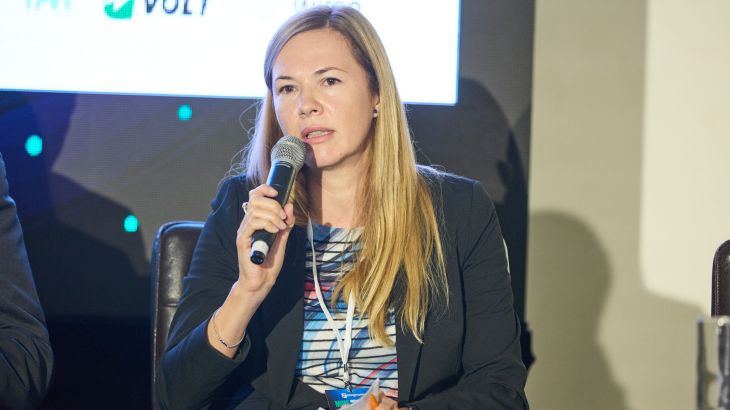Legislative risks have contributed to blocking the financing of renewable energy projects since the first wave and today the situation is the same, said Oana Mogoi, Sector Head Utilities & Natural Resources at ING Bank, during the “More renewables for Romania” conference, organized by Energynomics.
“The main factor preventing project funding from the previous wave of renewables was the lack of PPAs – a direct consequence of the legislative framework. There is now no longer a legislative ban on PPAs, but we see other legislative risks, for example the continued threat of new taxes on energy distribution and transmission, which should not exist for companies with regulated revenues, ones which need to make substantial investments in networks in order to enable new renewable energy capacity to be connected. And then we wonder why PPAs are not closed and access to financing is restricted, explained Oana Mogoi.
According to ING Bank’s representative, best practices in the sector recommend long-term contracts at a “fixed price, as far as possible”, and without Romania’s alignment with them there will be no sustainable projects on the market.
PPAs and contracts for difference are ways to increase the predictability of future cash-flows and provide additional comfort to investors by fixing all or part of the prices. In mature markets, the energy price in PPAs does not differ much from the market price, but the Romanian market is dominated by buyers and this puts downward pressure on prices.
“We hope that once the large corporations will include green energy targets in their plans, there will be a better balance and producers will have a say,” Mogoi said.
“More renewables for Romania” conference was organized by Energynomics, with the support of our partners among which Alive Capital, Astrasun, BCR, Elektra Renewable Support, EnergoBit, Eximprod, Ensys Renewable Solution, ING Bank, LAPP Romania, Metacon, Noark, Photomate, REI Grup, TAW Energy, Volt, Wiren
